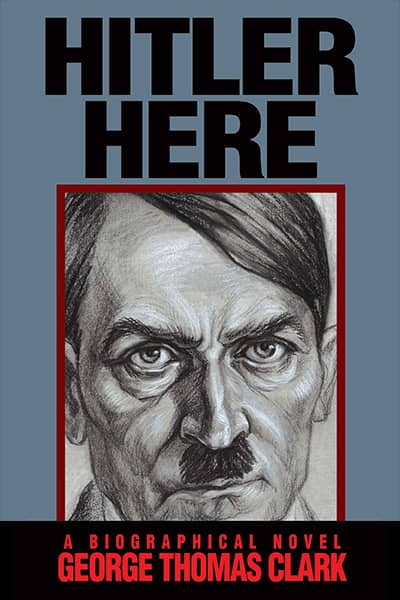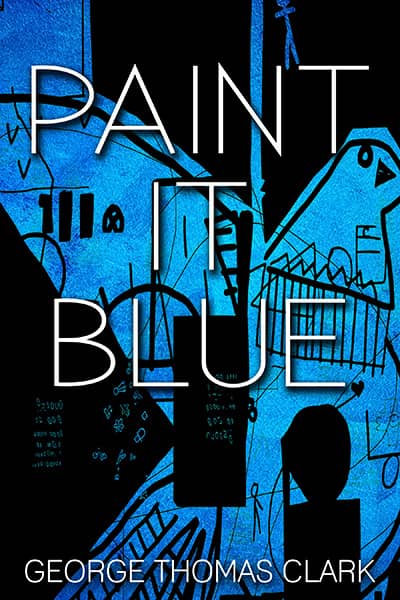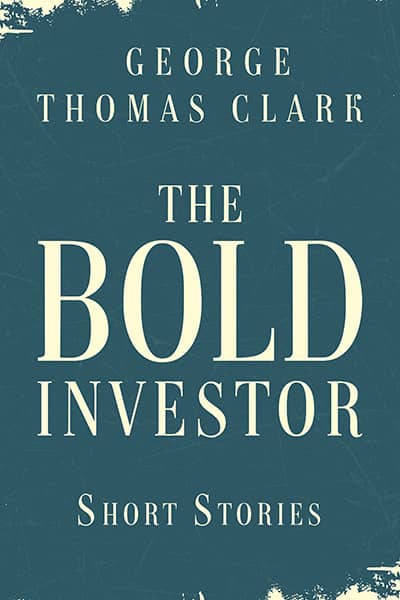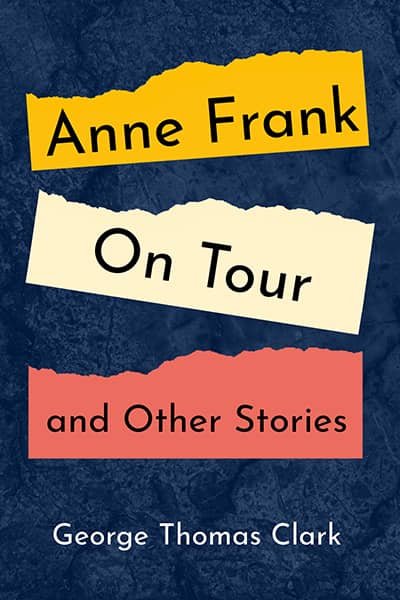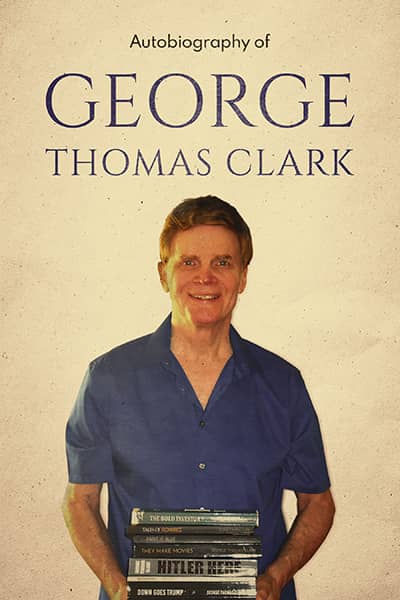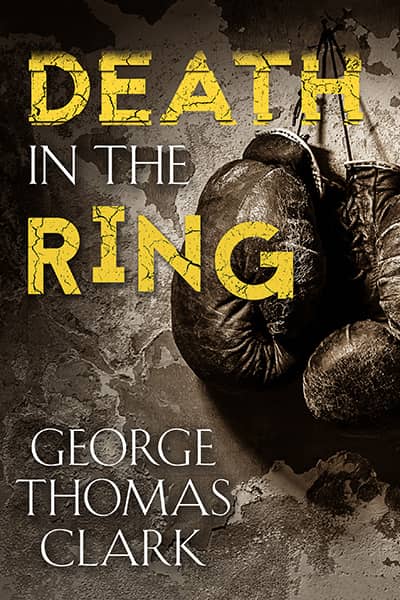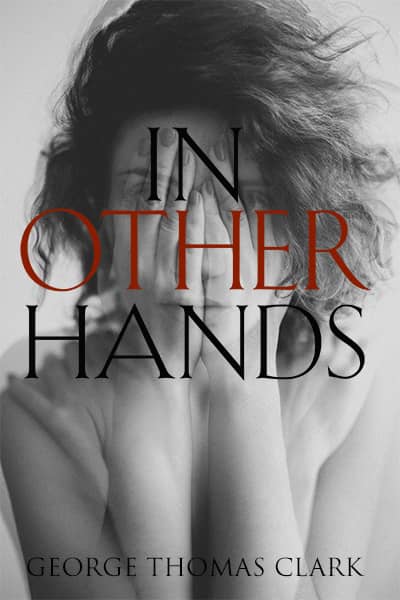Eliza Poe – Part 2
April 18, 2008
In more than thirty years representing actresses I had never received such an astonishing application. At first, naturally, I considered it a hoax. Eliza Poe, claiming to have been born more than two centuries ago in England, wrote that she most urgently needed to meet me. Ordinarily it is difficult approaching impossible to get through my door as I have an elite clientele celebrated for aesthetic and box office formidability. During my rather too many years of apprenticeship I squandered time on thousands of young women wrongly convinced of their talent. But this lady wrote a letter of such passion, and in a style so well capturing the period she wished to convey, that I thought, very well. I’ll take a look.
As she glided like a princess into my office, I was transfixed. There stood a star, luminous in that entirely-innate quality called presence, and I at once resolved there would be no character roles for this creature with brown eyes preternaturally large and pretty, a body petite and alluring, and thick hair the delight of any passionate man.
“Eliza. May I be so familiar?”
“You may.”
“I’m amazed I hadn’t heard of you.”
“I understand, sir, given your youth.”
In my position I receive countless compliments, not all false, about looking good for a fellow my age. But this was indistinguishable from sincerity, and from a woman younger than my three daughters.
“You certainly are a marvelous actress, Eliza. In your letter, you mentioned only stage roles. Surely you’ve done at least some TV and movie work. And I know you must have a modeling portfolio.”
“I had no opportunity for such things.”
“We must find an appropriate project. How old are you, by the way? I’ll keep it confidential. Let me guess. You must’ve been born in the late in 1980’s.”
“Though I understand your confusion, I must tell you my mother brought me into this world in 1787, and here I sit before you at age twenty-four. And I require a job at once to support my children.”
“How many do you have? No, don’t tell me yet. I want the whole story. Let me turn on the recorder. Okay. What was life like in late eighteenth century London?”
“My father, an actor, had died when I was two, and my mother, the refined actress Elizabeth Arnold, always took me to the theater in London and on her tours of the provinces. She said she’d always be consigned to minor roles unless, like many actors from our country, we came to America. On wintry seas we sailed two interminable months and arrived in Boston in January 1796. On the boat coming here my mother had met a musician called Charles Tubbs, who attributed his ill-humor to seasickness, an excuse my mother believed until they married.
“At age nine I soon successfully debuted in Boston and elsewhere. In Maine they said my performance ‘exceeded all praise’ and that my ‘powers as an actress would do credit to any of her sex at a maturer age.’ In a few months, my mother and Mr. Tubbs joined the manager Mr. Edgar and a dozen other actors to form the Charleston Comedians, and we began touring the South. Audiences in cities were generally civilized and appreciative but my most stimulating moments came in the provinces where the uneducated and unclean in attendance sometimes heckled our players, not all of whom, I concede, had classical training. When this happened I was sometimes called on stage. My entrance alone enthused the ruffians, and after I sang a song or two they generally rose to applaud.”
“That’s it – the opening scene of our movie,” I said. “Your mother must’ve been very proud. I hope she wasn’t jealous.”
“On the contrary; she’d taught me more than anyone and loved my success. I wanted to die after yellow fever stole her in North Carolina when I was eleven. Mr. Tubbs said not to despair, he’d care for me and I’d continue with the troupe. I got many good parts, playing brats before early womanhood transformed me into an ingénue. When I portrayed Biddy Belair in Miss in her Teens audiences cheered my taunts of a fussy and effeminate old fellow who sought to marry me.
“There were always many parts to learn as cities were small and theatergoers demanded new plays. Unceasing rehearsals, performances, and travel consumed my life, but I loved the attention and excitement. My most urgent need was to rid myself of the irksome and unstable Mr. Tubbs, who acted more abominably than he sang and embarrassed me by association. In 1799, after another yellow fever epidemic had subsided there, we journeyed to Philadelphia, the nation’s capital and home of the finest troupe, the Chestnut Threatre Company. I was hired. Mr. Tubbs was not. And the owner, Thomas Wignell, a deft comedian who’d often delighted George Washington, told my stepfather to seek work elsewhere and let me develop.
“During four principal seasons in Philadelphia, and summer engagements in Baltimore and Washington, I sang and danced and played a maid and Little Pickle and Moggy McGilpin and many other roles, even Prince John in Shakespeare’s Henry I, expanding my repertoire to seventy roles by age fifteen. I’d also begun working with a young comedian and actor, Charles Hopkins, who said he loved me but had to seek leading parts unavailable to him, or me, in the prestigious Chestnut Theatre Company, and departed for the Virginia Company while I finished my commitments in Philadelphia. I was most fortunate to bury myself in work. When yellow fever again attacked, I said no more and left to join Charles and become his wife as a precocious fifteen-year old.”
“What happened on your wedding night?” I asked.
“Sir!”
“Don’t worry. In films we can handle that by allusion much better than one could on stage.”
“It should suffice to say we were young and passionate.”
“Of course.”
“Our circuit included Alexandria, Fredericksburg, Richmond, Petersburg, and Norfolk, and stage journeys between were long, bumpy, tiring and, it seemed, always either very hot or cold. When we arrived and began to perform our audiences were usually delighted but a critic from the Norfolk Herald wrote that though I ‘sang with great taste and judgment’, I was ‘somewhat defective in action and had but a weak voice.’ He then conceded that ‘time and practice may procure her the one and strengthen the other.’ I spoke of this only in private. Men weren’t always so discrete. Once, a fellow actor ordered a heckler to cease and after another insult chased him into the alley for fisticuffs. Soon my reviews improved in Norfolk and around the Virginia circuit as I was noted for being ‘amply compensated by the plaudits with which she is always received.’ Charles also received much praise, particularly for ‘his skillful portrayal of old men.’
“In February 1804, while our company was performing in Richmond, a candle fell in a Norfolk cellar and burned out into a city soon in flames that devoured three hundred buildings and charred scores of citizens. Our Norfolk theater was untouched but that summer people there understandably desired no theatrical entertainment. Accordingly, the Virginia Company extended its season in Petersburg and returned to Richmond where Charles and I appeared in the comedy Speed the Plow with an inexperienced fellow called David Poe, who several times said he’d watched and admired us when we’d worked in his hometown of Baltimore.
“Charles was a decidedly better actor than David Poe but our manager gave the American, the first I’d appeared with, the key role. This was a scandal among our finely-trained British actors, as it had been shortly before in Charleston where the callow Poe stumbled through twenty new roles in five months. I concede he was dashing and had a wonderful voice but his nervousness, particularly when he played my lover, impelled him to sputter his lines if, indeed, he could remember them. Galleryites hissed and critics dipped quills in scalding ink. He also seemed rather morose since his family was aghast he’d forsaken the study of law to pursue the unsteady and too often disrespected life of an actor. He at least was determined and I hoped one day his acting would not be indelicate.
“Charles, though only twenty-one, had already become a distinguished character actor. I was still a popular ingénue of eighteen but poised to mature into leading dramatic roles. In the fall of 1805, with joy and optimism, we accompanied the Virginia Company to Washington, the new capital, to play with distinguished actors before eminent theatergoers. Following a delightful run we moved to Fredericksburg for a short season then returned to Washington.
“What is it, I asked Charles. I feel so hot and tired, he said. I was sure it was simply a fever. I prayed and pretended so. I didn’t mention the prominent actor who’d just died before he could join us in Washington. Don’t worry, I told Charles. You’ll soon be very fine. I’ll place another cool cloth on your forehead. Do you hear me? I can’t understand what you’re saying, Charles. Please speak to me as you always have. Can’t you see me? Right here’s the bucket. Vomiting black doesn’t mean you have yellow fever. Other people get it but not you. I can scarcely think or move but it’s been a week now and I’ll have to return to the stage. The company’s offering a benefit night for me, and as a tribute to you I’m choosing Adelmorn the Outlaw, in which we so often appeared as lovers.
“In January 1806 the Virginia Company opened the season in its new Richmond Theatre. David Poe and I frequently played lovers or husband and wife. After work he always offered to talk, and his companionship so lessened my grief I’m sure Charles would’ve blessed my marriage to David that March. By spring I was pregnant, and we decided to renew our lives by moving to Boston where I’d arrived a decade ago and the salty smell of the sea recalled my mother.
“The most sophisticated audiences and critics in the country resided in Boston, and I was almost as concerned as David. During the first fourteen weeks we acted in more than twenty plays, many with challenging roles new to us. The critics were generally fair to me, one noting I exhibited ‘a flattering promise of very handsome ability in the lines of naiveté comedy and the opera.’ David, conversely, was pilloried for ‘tameness, improper mannerisms, and (poor) diction.’ Sometimes audiences were crueler, shouting: ‘The fellow prefers mumbling to acting…You need not a cleaver to butcher your lines…’
“David once stopped speaking and strode to the edge of the stage to pronounce: ‘You Thespians could doubtless surpass my modest efforts. Please, step forward, so that I may judge you. But beware – if I find you wanting…’
“Into our cramped room my husband carried his wounds, doused them with alcohol, and as I took leave to endure my final two weeks of pregnancy he often remarked, ‘I’m honored to be the servant of such an eminent actress.’ Within days of Henry’s birth in January 1807 David began snapping, ‘Shut up, you lamentable little lout.’
“Three weeks later I hastened back to play Cordelia in King Lear. This would be the most important role of my career and an opportunity to appear with the robust James Fennell, one of the two finest actors working in America. Alas, he sprained an ankle the night before our debut, and during his week of recovery the critic J.T. Buckingham said of David’s leading performance in The London Merchant: ‘We expected little satisfaction, and of course were not disappointed.’ A few days later, Buckingham unveiled more of himself than my acting when he wrote, ‘Mrs. Poe was a very green Little Pickle. We never knew before that The Spoiled Child belonged to that class of being termed hermaphroditical, as the uncouthness of his costume seemed to indicate.’
“Perhaps I should sympathize with Mr. Buckingham since his face suggested bad breeding and he appeared as one who received affection only when he paid for it. David wanted to strike him and perhaps would have had he been drinking. He instead rushed into the critic’s lair and upbraided him for insolence. ‘He looked at me obliquely, if at all, and acted as if he were Shakespeare,’ David said. In his next review Buckingham retaliated: ‘We know not which is more laughable, the absurd, preposterous conduct of the managers in giving the character of Cordelia to a lady who is so totally inadequate to its representation; or to the ridiculous vanity which prompted her to accept it.’ Another critic stated, ‘We cannot in charity attempt any analysis of her performance.’ Others were far less condemnatory but all preferred me as a comedienne.
“In May 1807 David and I were delighted to be invited back for the fall by the Federal Street Theater company but relieved our initial season had ended. For the first time as man and wife we visited Baltimore, and I met his parents, siblings, and other relatives. Most were friendly, some quite complimentary, and all concerned about David’s inability to stop drinking and his incoherence once he’d started. Back in Boston we had fewer new roles and my reviews were generally very good and David’s sometimes encouraging. Still he drank and still I tolerated him and by April 1808 I was pregnant again. We needed money. So did most of our friends in the theater. Congress in the Embargo Act had prohibited exports to Europe, and idle ships sat in Boston Harbor I sketched one morning.
“That fall I was thankful to be back for a third season in Boston but told David I couldn’t perform my currents roles, learn new ones, care for Henry, and nurture the child within me unless he quit drinking and disturbing me all night. His misbehavior worsened. Three weeks after Edgar’s birth, in January 1809, I returned to the stage, and David altogether vanished. I was relieved and I was frantic. Where had he gone? Was he even alive? Should I really yearn for his return? In March I learned he’d spent some time stumbling around Stockerton, Pennsylvania, a small town where his cousin George Poe resided. To a relative the latter wrote: ‘One evening he came out to our house…he had me called out to the door where he told me the most awful moment of his life was arrived, begged me to come and see him the next day 11 o’clock at the Mansion House, said he came not to beg, and with a tragedy stride walked off after I without reflection promised I would call – in obedience to my promise I went there the next day but found him not nor did I hear of him until yesterday.’
“That was ten days later when David, weakening in a Stockerton tavern, scrawled this note: ‘Sir, you promised me on your honor to meet me at the Mansion House on the 23d – I promise you on my word of honor that if you will lend me 30, 20, 15, even 10$ I will remit it to you immediately on my arrival in Baltimore. Be assured I will keep my promise at least as well as you did yours and that nothing but extreme distress would have forc’d me to make this application – Your answer by the bearer will prove whether I yet have favour in your eyes or whether I am to be despised by (as I understand) a rich relation because when a wild boy I join’d a profession which I then thought and now think an honorable one. But which I would most willingly quit tomorrow if it gave satisfaction to your family provided I could do any thing else that would give bread to mine – Yr. politeness will no doubt induce you to answer this note…D. Poe, Jr.’
“George Poe replied that David ‘need not look to him for countenance or support…(and) for the future desired not to hear of him…’ I wanted nothing so much as David’s return. I embraced him and rebuked him and told him he must never behave so again. Please be a proper father and husband. We’ll all be so happy. April 1809 is our time, David. I’ve been playing Juliet to the Romeo of young John Howard Payne, the finest actor yet born in this country. He appreciates my work. I know he’ll ask for me to play Ophelia to his Hamlet and will see that you are Laertes. Isn’t this wonderful? Look, the New England Palladium just wrote it took ‘peculiar pride and satisfaction in noticing Mrs. Poe. In their performances generally, few take precedence of this pleasing actress; and for their assiduity, accuracy and unassuming deportment, and with a uniform desire to please, none…The excellence of her Juliet, Sigismunda, Ophelia, etc., excited a lively interest and gratification in the beholders…We feel the utmost confidence in her success.’ And now for our renaissance we’re going to New York for a stimulating season that begins in September 1809 at the elegant Park Theatre with two thousand seats.
“I felt I’d already mastered comedy and was maturely embracing Shakespeare as I again played Ophelia in Hamlet. Despite my success in Boston, the loudest critic here, an anonymous fellow his editor at The Rambler described as a ‘young, plump, rosy-faced urchin,’ wrote that I was ‘too light for Ophelia (and) seemed wanting in sensibility in the earlier scenes, and the mad scene was robbed of most of its effect by a total exclusion of melancholy.’ A couple of weeks later the urchin attended Othello and concluded I was ‘very unequal to Desdemona. It is much to be lamented that this lady should be thrust into parts for which she is so wholly unqualified.’ Meanwhile, in Abaellino, he’d pounced on David’s pronouncing the character Dandoli as Dand-il-e, and thereafter called him Dan Dilly and declared ‘a footman is the extent of what he ought to attempt.’
“Ignore him. We don’t even know who he is.”
“I’ll find out,” David said, pulling out of my arms and through the door. He stormed through the office of The Rambler, screaming, “Where’s the runt? Is it you? Where’s he hiding? What’s his name? His kind never stands up. Tell him this: I challenge him to a duel.”
“The urchin continued his anonymous fire, writing ‘poor Dan Dilly is fated to spoil whatever he undertakes, and like a millstone round the neck of a goose, he will be sure to drag it to the bottom in spite of all its buoyant properties.’ The Rambler’s editor David Longworth commented that his critic ‘is too acrimonious; and I must take the liberty to differ from him, in some measure, respecting Mr. Poe’s talent, who, if he would take pains, is by no means contemptible.’ The editor of the Boston magazine Something published a letter to ‘Brother Editors’ that said, ‘We strongly and feelingly recommend to your encouragement and protection, the talents of Mr. Poe. – He has talents, and they may be improved or ruined by your just or incautious observations.’
“It’s more than the reviews,” I told David.
“It’s your condescension,” he said.
“It’s your drunkenness.”
“Perhaps I should leave again so I won’t disrupt your affairs with your babies.”
“Please pack at once.”
“In February 1910 I was delighted John Howard Payne came for an engagement during which I was again his leading ladies Ophelia and Juliet. My reviews were evidently unsatisfactory to the theatre mangers and that spring they often demoted me to supporting roles. I began to seek more promising employment. My motivation wasn’t merely aesthetic: I was bearing my third child.”
“And John Howard Payne was the father,” I said. “I assure you, Eliza, in our movie this romance will rival that of Spencer Tracy and Katherine Hepburn.”
“You presume too much, sir.”
“All right? Then who was the father? Did David ever visit again? For one night, perhaps.”
“We didn’t, and I won’t, discuss such things.”
“Would you for ten million dollars?”
“Please let me continue. In order to escape the restrictions of New York I accepted an offer to return to the Virginia and Charleston circuit in July 1810. A better judgment I could not have made. A few weeks into the season, a theatergoer wrote this to the Richmond Enquirer, ‘From an actress who possesses so eminently the faculty of pleasing, whose powers are so general and whose exertions are so ready, it would be unjust to withhold the tribute of applause. Were I to say simply that she is a valuable acquisition to the Theatre, I should dishonor her merit and do injustice to the feeling of the public.’
“Only this support enabled me to work in Norfolk until two weeks before the birth of Rose in December. I’d acted that long carrying my first two children but was now weakening and had to send four-year old Henry to live with his Poe grandparents in Baltimore. Edgar and Rose stayed home with a nurse as I worked incessantly, playing lead roles in great plays, both new and familiar to me, impersonating ‘pallid and long-suffering ladies’ and ‘elegant’ women and a ‘rustic farm girl.’ Even when the theatres had short recesses, I could not rest. I wanted to sing in concerts. I had to. My children needed me. No one knew where David was but we heard he might be dead. In the summer of 1811 I gathered Edgar, Rose, and their nurse and rushed to Norfolk which was always sweltering and malarial and more so now, it seemed, and I worried the public would notice. But maybe they wouldn’t. I used lots of makeup. And I was only twenty-four. Nevertheless, a gentleman wrote to the Norfolk Herald that several years earlier ‘Mrs. Poe on her first appearance here met with the most unbounded applause – she was said to be one of the handsomest women in America; she was certainly the handsomest I had ever seen. She never came on the stage, but a general murmur ran through the house – What an enchanting creature! What a form! – And how well she performs…Year after year did she continue to extort these involuntary bursts of rapture from the Norfolk audience…But now misfortunes have pressed heavy on her. Left alone the only support of herself and several young children – Friendless and unprotected, she no longer commands that admiration and attention she formerly did…And yet she is as assiduous to please as ever, and tho’ grief may have stolen a few of the roses from her cheeks, still she retains the same sweetness of expression and symmetry of form and feature.’
“I don’t know why this kind gentleman considered me friendless – I wasn’t. But he was indeed perceptive. Soon after returning to Richmond my health sometimes forced me off stage then altogether banished me in October and I lay feverish and coughing in a boarding house. Was it malaria? Yellow fever? Something else? Lingering several weeks until December, I told Mrs. Allan and Mrs. McKenzie they were very kind. As they leaned over my bed, I grasped their hands and said, “Promise me you’ll help.”
“We’re here, and we’re going to stay.”
“I mean the children. Please love them when I leave.”
“Eliza…”
Source – The Brief Career of Eliza Poe by Geddeth Smith
